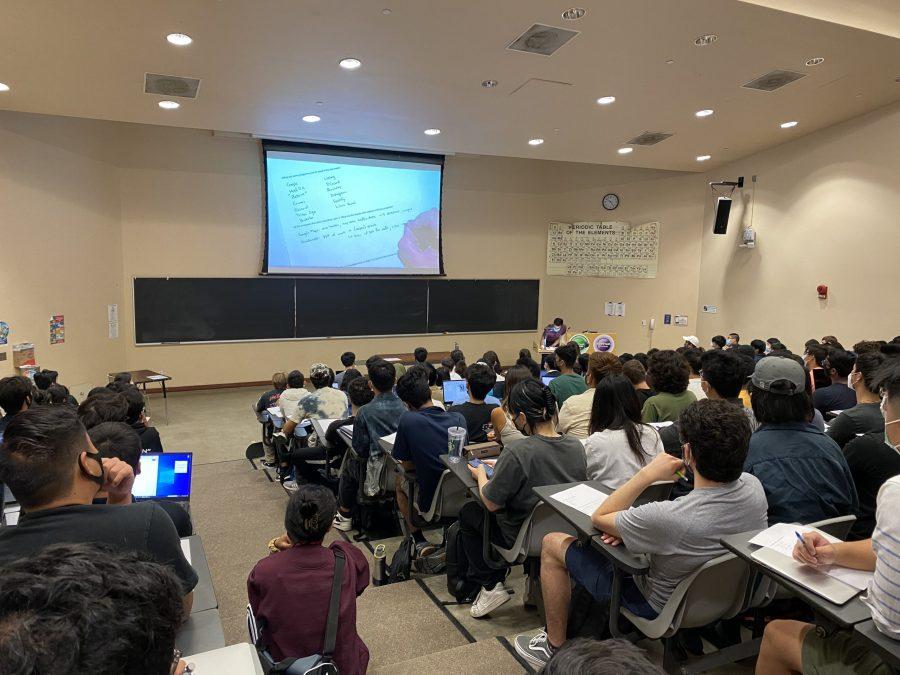Attendance should not be required.
From the time, money, and compromises students make, their motivation to learn should be evident. However, even for a highly motivated student, it is not always the case that attending everything is the best. The tradeoffs students make to optimize learning need to be acknowledged. Some learn better from the textbook, and attending a lecture with 200 people with the professor going over the slides and constantly being bogged down by questions may be detrimental for such an individual. While one may argue that this student could use this as review, there may also be better ways of solidifying knowledge. For some, doing different practice problems with one’s own hand is better than watching different people solve one problem.
Another defect of required attendance is schedule conflicts during course enrollment. In order to graduate in time, students need to take certain courses, but the course enrollment system does not always allow for a perfect schedule. If attendance is required, even if a student thoroughly understands the topic, they will lose points from missing class, even if the choice to miss class was made in order to optimize learning and enable them to come to such an understanding. Thus, to avoid being penalized for doing the right thing, students feel pressured into making choices suboptimal for their learning, which contradicts the primary aim of education.
Attendance points also make the grading more complicated. Ideally, grading systems should be a gauge of the student’s competence with the material. This does not correlate to a student’s effort or enthusiasm. While the latter two are appreciated and will indeed factor strongly when students approach professors for letters of recommendation, they should be kept separate from grades for fairness and to incentivize true learning.
One may argue that attendance points will incentivize students to participate in class, which will indirectly contribute to their learning. However, this assumes that participating in class is indeed the best way for a student to learn. In reality, some students learn better by reading the book, doing practice problems in small groups, or going to a tutor.
Furthermore, rather than fail to incentivize true learning, attendance points may even encourage students to game the system. From the perspective of a lazy student, attendance points may become an easy way to get buffer points to cover the points lost over not knowing the material, leading students to waste time sitting in class and “participating” only for the sake of a grade rather than seeking to extend one’s knowledge or contributing to the discussion. Similarly, a 1999 paper by St. Clair concluded that “By making class attendance compulsory, students can lose their feeling of control, begin to feel bad about their decision to enroll in college, and may decide there are more important things to do than attend class.”
The purpose of education and grades are to instill and evaluate one’s knowledge. While class participation may help for some, for others, that time would be better spent through different means of learning. Individuals should be able to learn in whatever way suits them best as long as they achieve the ends of learning. Thus, grades should be independent of the means to that end and not be used to incentivize students to conform to a certain style of learning.
Photo by Andrew Pan for the UCSD Guardian.















elizabethcaroll • Feb 8, 2022 at 4:48 am
One of the most important things a student can do is take attendance seriously. In order to get a college degree, you should be able to attend every class you want, but that is not the case for most students. It is possible that a student will have to work part-time in order to pay for college tuition. Others may have to attend team sports games in order to meet scholarship requirements. Or a student may have an accident, injury, or family emergency. In these circumstances, attending classes should not be mandatory.
Nils • May 24, 2024 at 12:07 am
I am curious, why is attendance one of the most important things? I feel the academic knowledge gain is the main goal of the university…
And for that studies suggest there is no difference (or not much, depending on the Study).
Attendance for the sake of attendance sounds rather dull to me.
Evan Elliott • Feb 4, 2022 at 1:09 am
In true education, an important part of the process is the direct impartation of knowledge from the expert to the student. The interaction, questions, feedback is an essential part of learning process. Learning is not only about gaining textbook knowledge, but about incorporation of that knowledge in a manner that the expert can present. The fact that not all professors are good at formal teaching is not a reason to abandon the system. Rather, more efforts into improving professor teaching (including making that a more integral part of their professional evaluation) is the answer.